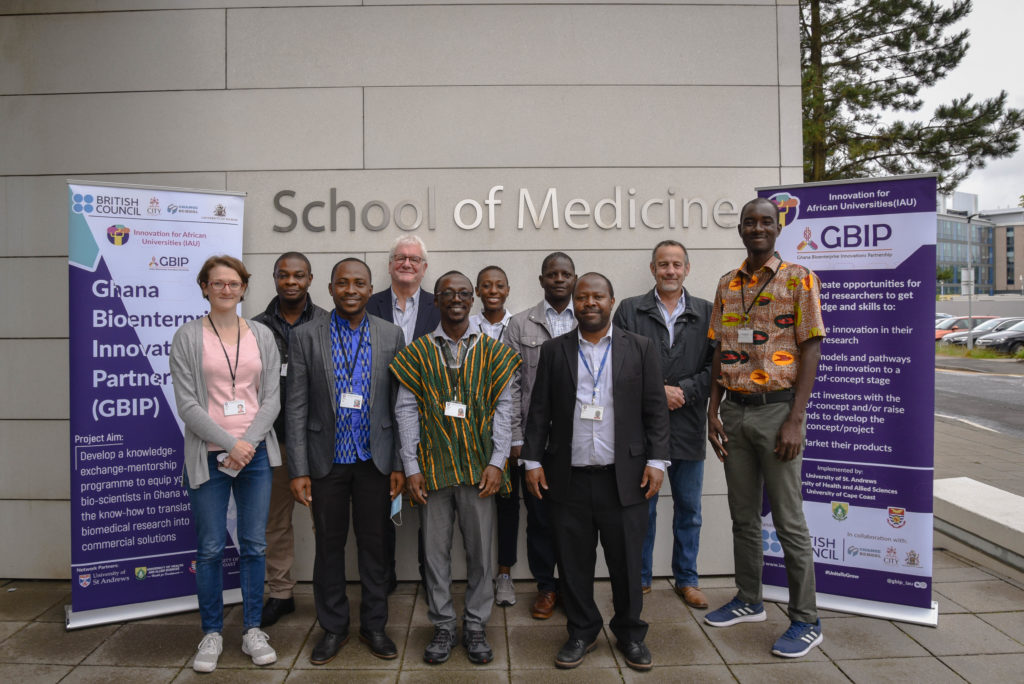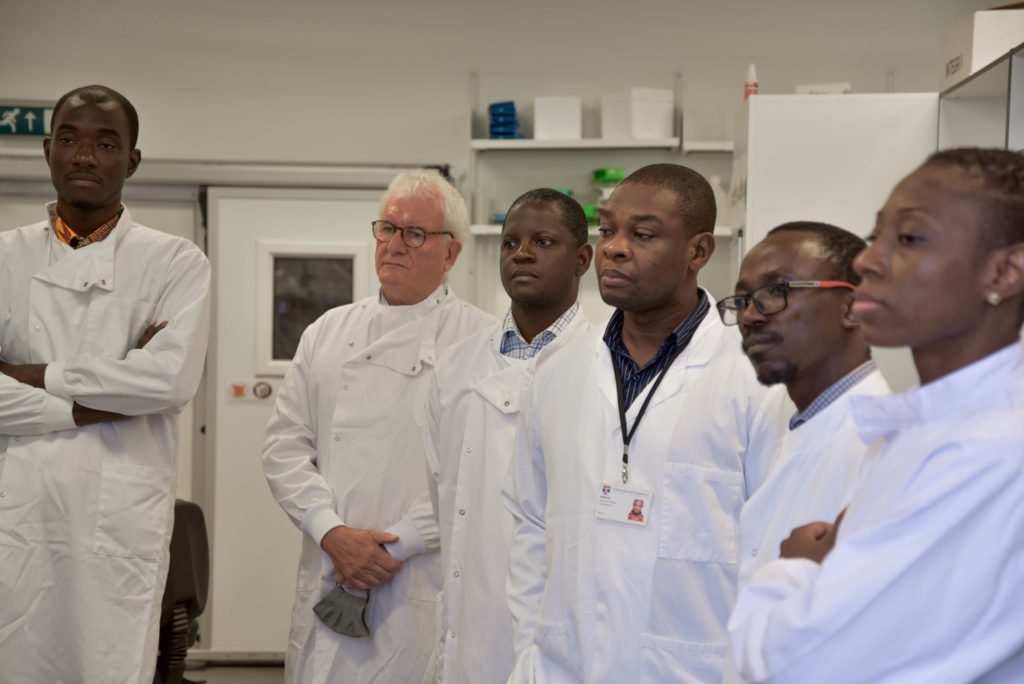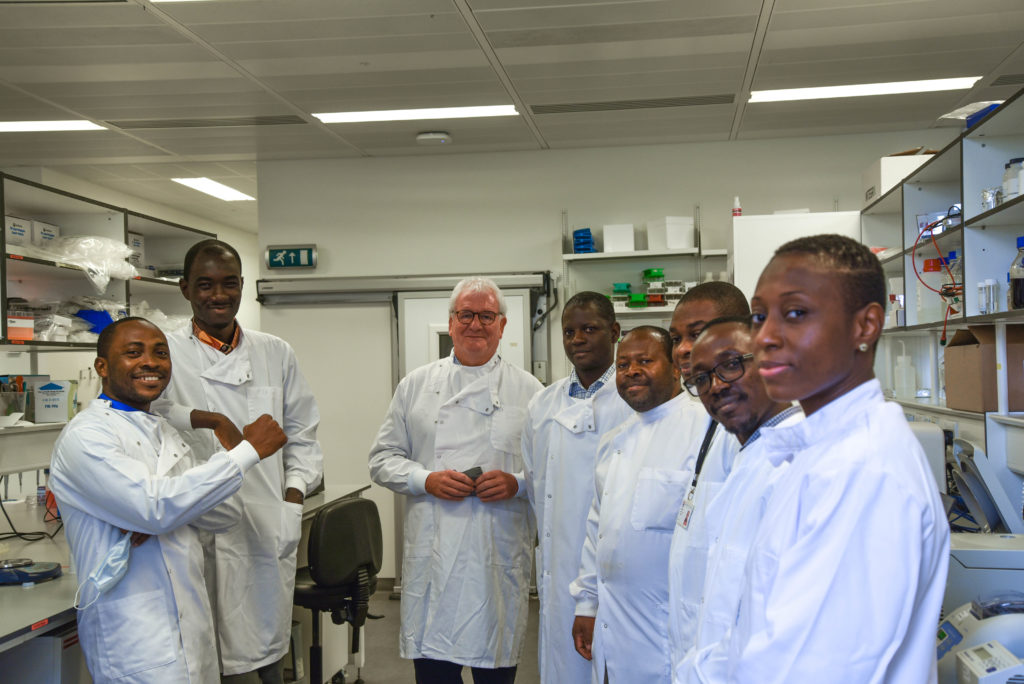Partnering with Ghana to Promote Bio-Enterprise
The University of St Andrews has hosted a delegation of Ghanaian academics from the University of Health and Allied Sciences and University of Cape Coast. The visit is part of Innovation for African Universities (IAU), a programme launched by the British Council aimed at increasing youth and graduate employability in Africa.

IAU was brought to St Andrews by Dr Wilber Sabiiti, a biomedical research expert in the School of Medicine and Principal Research Fellow in Medicine in the Division of Infection and Global Health. In 2021, the British Council funded 22 partnerships in four African countries: South Africa, Nigeria, Kenya, and Ghana. The University of St Andrews and its partners in Ghana are focusing on the translation of innovations in biomedical research into real-world enterprise, growing the biotech industry and cultivating entrepreneurship in the sector. Through this, the team aims to address graduate employability challenges in Ghana and Africa as a whole, opening up new job opportunities while providing innovative solutions to the health and agricultural sectors.

While in St Andrews, the Ghanaian delegates have participated in management training provided by St Andrews Lean Consulting, equipping them with the skills to streamline their processes for higher efficiency and productivity in both academia and industry. These principles will be applied in a masterclass for young entrepreneurs in Ghana, which is expected to spearhead growth in the domestic biotech industry. Meanwhile, St Andrews will continue to serve as a bridge that connects academic research innovations in Africa and the biotech industry of the UK and beyond.
The University’s role has evolved through years of research and innovation between the Infection and Global Health Division at the School of Medicine and its partners in infectious diseases and determinants of health research across Africa. One prominent outcome of this work is the tuberculosis Molecular Bacterial Load Assay (TB-MBLA), the first ever diagnostic test that measures live tuberculosis bacteria without having to grow them in the laboratory, which is now under commercialisation.

Additional developments include diagnostics for the rapid detection of antibiotic resistant bacteria, and for that of bacteria that worsen chronic obstructive pulmonary disease. The St Andrews team has led multinational clinical trials to optimise treatment of tuberculosis with a hope to shorten the timescale from the current 6 months to 4 months or less. With tools like TB-MBLA, it is comparatively easy to identify and classify patients based on their response to treatment, and to offer more appropriate courses of treatment as a result. This will help eliminate under- and over-treatment, both of which can pose a significant obstacle to patient recovery. Building on their existing raft of innovation, Sabiiti’s research group will be delighted to share the skills and know-how they have developed with their partners in Low- and Middle- Income Countries, helping them to develop their own innovative research.